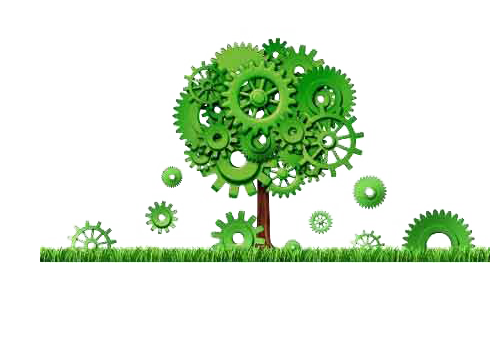Manufacturing involves transforming raw materials like iron into new products such as cars.
The Manufacturing sector comprises establishments engaged in the mechanical, physical, or chemical transformation of materials, substances, or components into new products. Establishments in the Manufacturing sector are often described as plants, factories, or mills and characteristically use power-driven machines and materials-handling equipment. However, establishments that transform materials or substances into new products by hand or in the worker's home and those engaged in selling to the general public products made on the same premises from which they are sold, such as bakeries, candy stores, and custom tailors, may also be included in this sector. Manufacturing establishments may process materials or may contract with other establishments to process their materials for them. Both types of establishments are included in manufacturing.
Manufacturing
The banks also offer investment and insurance products. As a variety of models for cooperation and integration among finance industries have emerged, some of the traditional distinctions between banks, insurance companies, and securities firms are fast diminishing. In spite of all these developments, banks continue to maintain and perform their primary role—accepting deposits and lending funds from these deposits.
The manufacturing sector consists of food manufacturing, Textile & Textile product mills, Apparel manufacturing, Leather & allied products manufacturing, Petroleum and coal products manufacturing, Chemical manufacturing, sugar production plants, automotives, Computer and electronic product manufacturing, Electrical equipment manufacturing.
Growth and opportunities
Over the past two decades, the Aerospace & Defense industry has been going through a gradual transformation driven by the reality of shifting global demand patterns. The industry has responded with a series of mergers and acquisitions which have resulted in a handful of large ecosystems centered on diversified OEMs supported by global supply chains. While A&D has always been a complex environment to operate in, the current recession has imposed a unique set of contradictory imperatives and resulting challenges on the companies in this sector.
Today, more than ever before, the automotive industry is looking for avenues to reduce costs, shorten product lifecycles, innovate and collaborate with partners – suppliers or dealers, to deliver customer value. The Automotive Industry is chasing highly price sensitive & demanding customers in economically challenging times, signified by excess capacity, fewer customers and geographical market shifts. Large manufacturing and assembly investments have been made, and excess capacity threatens the industry – from the largest to the best established automakers and their supply chain partners.
A higher demand for customized products and services in the industrial manufacturing sector is leading to creation of more rationalized designs, greater standardization and modularity across products. Global competition and the need to protect profits is forcing manufacturers in this sector to adopt best practices along with other measures to increase quality of products and services.

What we offer

- Production planning
- Warehousing and distribution
- Transportation management
- Pricing and promotion
- Demand management